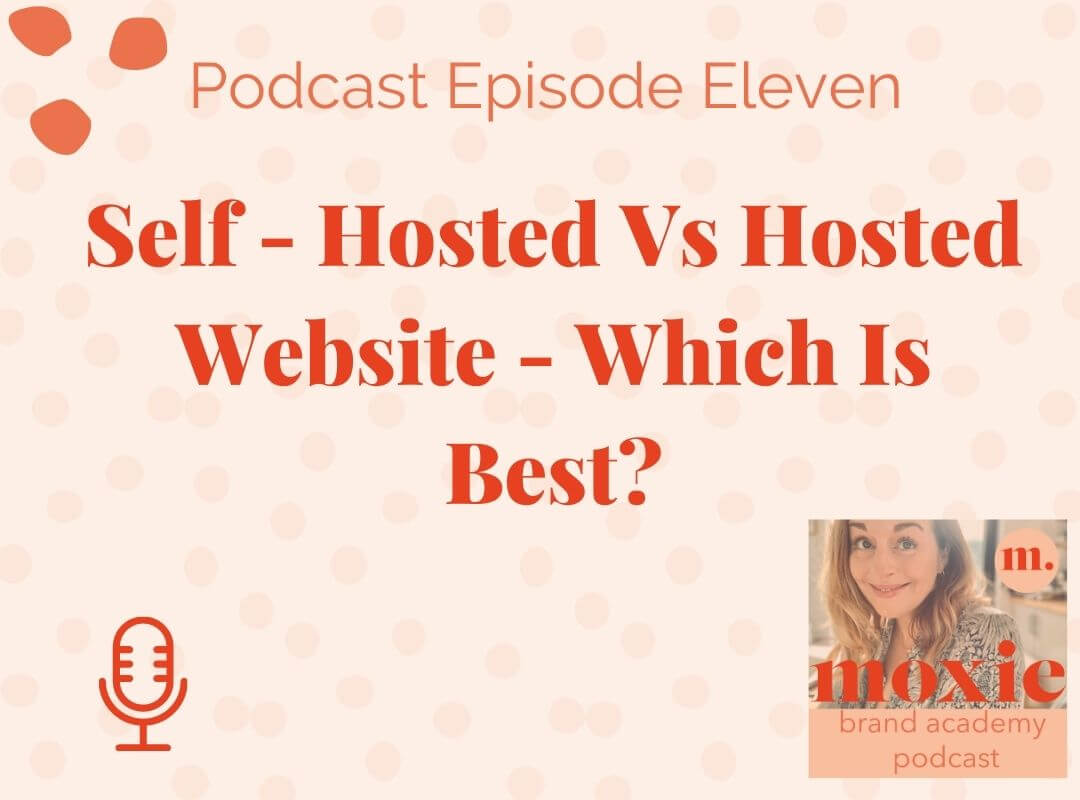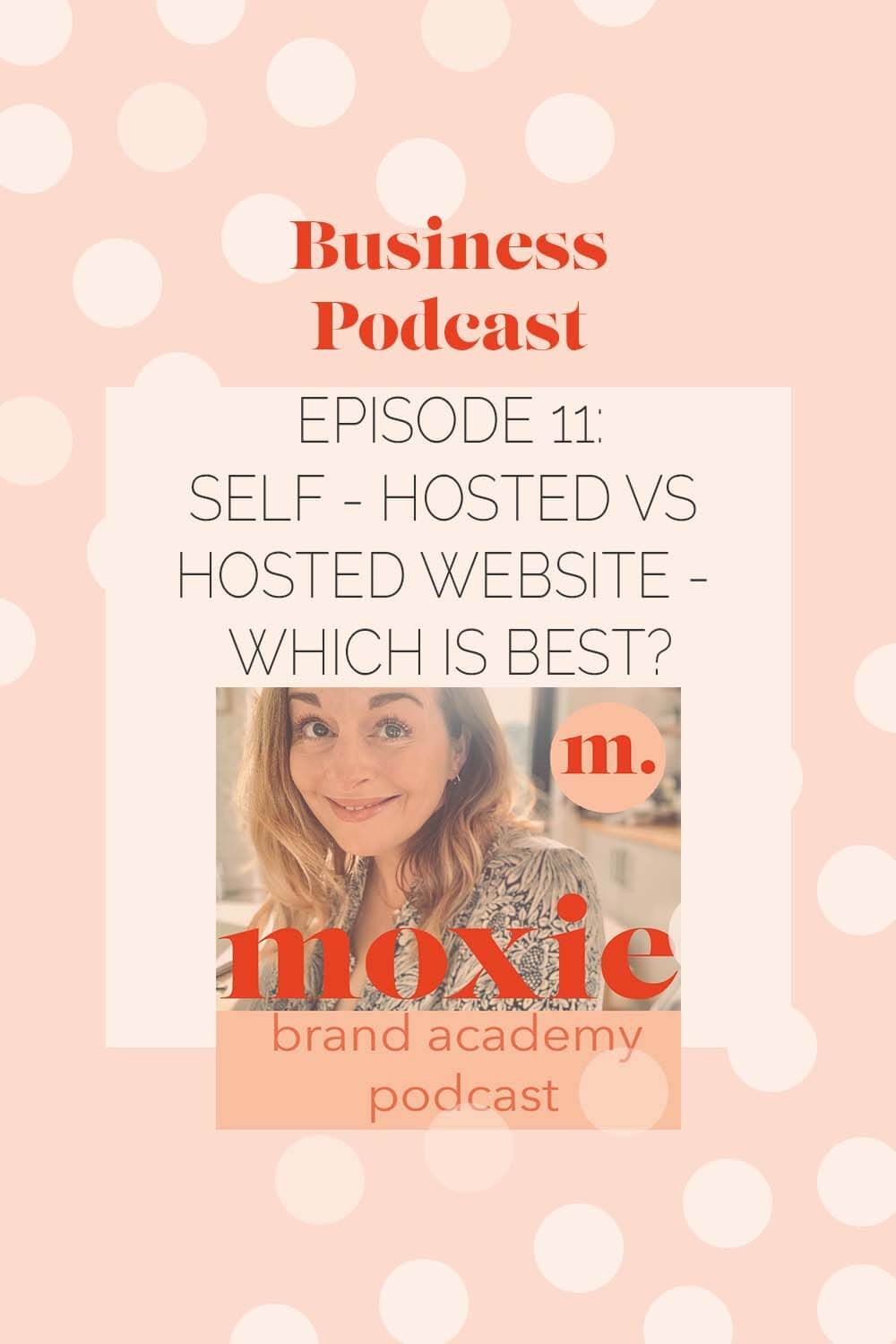Self-Hosted Vs Hosted Website – Which Is Best?

Hello, welcome to this week’s episode all about the pros and cons of self-hosted websites, so grab your favourite drink and let’s get into it.
Before we get into it I just wanted to explain what I’m chatting about this week. I know some of you will know exactly what I’m talking about, but a self-hosted website is one that has hosting paid for independently. You then build a site on the hosting by adding your own CMS or content management system like WordPress and go from there. A hosted website is one that you pay a monthly or annual fee for and you build on that platform. Sites built with Wix, Weebly, Shopify and Squarespace would be classed as hosted websites. Ok now we’ve covered the technical definitions lets talk about the pros and cons.
Websites can have a huge impact on the success of a business. A good one can bring in sales and create loyal customers. A bad one can put a customer off so much that they tell others how bad it is.
At one time self-hosting, a website was something that was only possible for big companies with big budgets and in-house developers to keep it running smoothly. But plugins like Elementor mean anyone can design a website they love on WordPress. Elementor’s free option is excellent at making beautiful websites, whilst their paid option gives extra functionality. So if anyone can build a WordPress website should you be doing it?
So if you’ve listened to any of my other podcast episodes you’ll know I don’t believe in should. What one person does is not always right for another and the same goes in business. Just because Jenny has a WordPress website doesn’t mean you need one too.
That said I do think that if it’s right for your business WordPress, self-hosted sites have unlimited potential and you have complete power. I love hosted websites too, like Squarespace or Shopify. Don’t get me wrong I’m not here to say you should have any particular website, just to tell you, you can self-host a WordPress site yourself.
So why do I love a self-hosted option?
I have self-hosted a blog or website for 10 years now. I have also designed and worked with hosted sites too. So my opinion on which is best is not that simple.
With a self-hosted site, you get complete control.
A hosted website can let me point out that it’s extremely unlikely, but it can disappear overnight or kick you off without warning. With a self-hosted site, the hosting company could disappear but you can take independent back-ups and upload that to a new host. Here’s a reminder to go download a backup for those self-hosted website owners.
SEO
You have complete control, you can install the Yoast plugin which helps you maximise your SEO on every page and post. This makes on-site SEO simple.
Offsite SEO is also easy to influence on a self-hosted site. You can control the page speed and work on ways to make your site faster, you can offload functionality on certain pages to speed them up and you can use various plugins that will speed up your site.
Hosting and Server
This is a major benefit. Where your website server is located matters, If you want to rank in the UK, having a UK server improves the chances of that significantly. The speed of the sever, whether it’s shared hosting, cloud hosting or dedicated server hosting all make a difference.
As a rule, hosted websites don’t give you the choice in how your website is hosted, where your server is and what kind of technical specifications.
Squarespace uses the same server for their own site as their customers use, so it is a good server, but it’s still shared hosting which does have an impact on SEO. They use Content Delivery Networks to help websites load faster in other countries.
Shopify servers are also based in the USA but they also use a content delivery network to ensure fast loading in other countries.
Depending on the type of hosting you choose it can be more cost-effective. Shared self-hosting with a reputable company can be cheaper than hosting services.
Self-hosted sites are completely customisable, with the help of tutorials or a professional. You can do whatever you want with a self-hosted site, the possibilities are endless. There is the ability to add code to the premium packages in Squarespace and Shopify has the ability to change the themes and add CSS too.
What are the drawbacks?
You are responsible if something goes wrong. So you need to know a little bit about websites or have someone you can call on to help you out.
You need to keep the software updated and keep an eye on spam comments and issues.
Self-hosted websites are full of limitless potential and give the owner the choice of how to host their site. And with new plugins and templates, it is entirely possible to build something from scratch with no coding needed, just like a hosted website.
Ultimately you have to make the choice for your business. It’s great to take advice or listen to others but building a website is an important part of your business and it has to be right for you.
The takeaway
- You can self-host a WordPress site, you don’t need a developer
- You should make the right choice for your business, take advice but think through what you and your business need.
- If you chose to self-hosted ensure you do regular back-ups and plugin/software updates.
I hope you found that useful, if you want to chat some more get in touch, my details are in the show notes, I’m here to help.
Listen to the podcast episode here
Pin this for later

